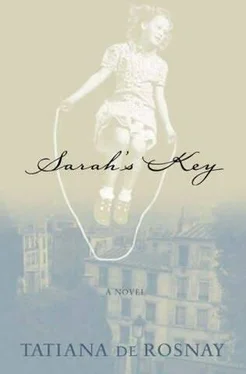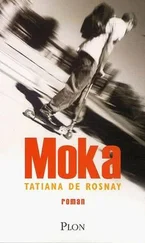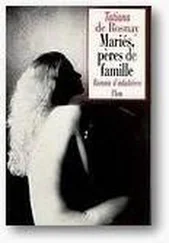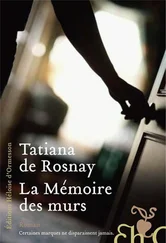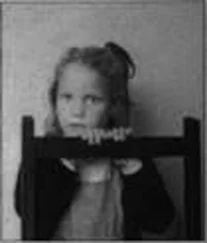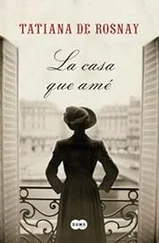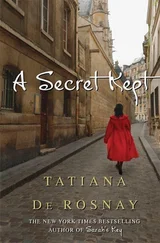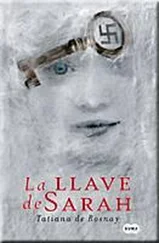He took an envelope out of the pocket of his jacket.
“The address was in here. The same street you mentioned in Lucca. Rue de Saintonge.”
I shook my head.
“I don’t get it.”
He handed the envelope to me. It was old, torn at the corners. There was nothing written on it.
“Open it,” he said.
I pulled out a slim, tattered notebook, a faded drawing and a long, brass key that fell to the floor with a clank. He bent to pick it up, nestling it in the palm of his hand for me to see.
“What is all this?” I asked warily.
“When you left Lucca, I was in a state of shock. I could not get that photograph out of my mind. I could not stop thinking about it.”
“Yes,” I said, my heart beating fast.
“I flew to Roxbury, to see my dad. He’s very ill, as I think you know. Dying of cancer. He can’t speak anymore. I looked around, I found this envelope in his desk. He had kept it, after all these years. He had never shown it to me.”
“Why are you here?” I whispered.
There was pain in his eyes, pain and fear.
“Because I need you to tell me what happened. What happened to my mother as a child. I need to know everything. You’re the only person who can help me.”
I looked down at the key in his hand. Then I glanced at the drawing. An awkward sketch of a little boy with fair, curly hair. He seemed to be sitting in a small cupboard, with a book on his knee and a toy bear next to him. On the back, a faded scrawl, “Michel, 26, rue de Saintonge.” I leafed through the notebook. No dates. Short sentences scribbled like a poem, in French, difficult to make out. A few words jumped out at me: “le camp,” “la clef,” “ne jamais oublier,” “mourir.”
“Did you read this?” I asked.
“I tried. My French is bad. I can only understand parts of it.”
The phone in my pocket rang, startling us. I fumbled for it. It was Edouard.
“Where are you, Julia?” he asked, gently. “She’s not well. She wants you.”
“I’m coming,” I replied.
William Rainsferd looked down at me.
“You have to go?”
“Yes. A family emergency. My husband’s grandmother. She’s had a stroke.”
“I’m sorry.”
He hesitated, then put a hand on my shoulder.
“When can I see you? Talk to you?”
I opened the front door, turned back to him, looked down at his hand on my shoulder. It was strange, moving, to see him on the threshold of that apartment, the very place that had caused his mother so much pain, so much sorrow, and to think he did not yet know, he did not yet know what had happened here, to his family, his grandparents, his uncle.
“You’re coming with me,” I said. “There’s someone I want you to meet.”

MAMÉ’S TIRED, WITHERED FACE. She seemed asleep. I spoke to her, but I wasn’t sure she heard me. Then I felt her fingers encircle my wrist. She held on tight. She knew I was there.
Behind me, the Tézac family stood around the bed. Bertrand. His mother, Colette. Edouard. Laure and Cécile. And behind them, hesitating in the hall, stood William Rainsferd. Bertrand had glanced at him once or twice, puzzled. He probably thought he was my new boyfriend. At any other time than this, I would have laughed. Edouard had looked at him several times, curious, eyes screwed up, then back at me with insistence.
It was later, when we were filing out of the nursing home, that I took my father-in-law’s arm. We had just been told by Docteur Roche that Mamé’s condition had stabilized. But she was weak. There was no telling what would happen next. We had to prepare ourselves, he had said. We had to convince each other this was probably the end.
“I’m so sad and sorry, Edouard,” I murmured.
He stroked my cheek.
“My mother loves you, Julia. She loves you dearly.”
Bertrand appeared, his face glum. I glanced at him, briefly thinking of Amélie, toying with the idea of saying something that would hurt, that would sting, and finally letting go. After all, there would be time ahead to discuss it. It did not matter right now. Only Mamé mattered now, and the tall silhouette waiting for me in the hall.
“Julia,” said Edouard, looking back over his shoulder, “who is that man?”
“Sarah’s son.”
Awed, Edouard gazed at the tall figure for a couple of minutes.
“Did you phone him?”
“No. He recently discovered some papers that his father had hidden all this time. Something Sarah wrote. He’s here because he wants to know the whole story. He came today.”
“I would like to speak to him,” said Edouard.
I went to fetch William, I told him my father-in-law wanted to meet him. He followed me, dwarfing Bertrand and Edouard, Colette, her daughters.
Edouard Tézac looked up at him. His face was calm, composed, but there was a wetness in his eyes.
He held out his hand. William took it. It was a powerful, silent moment. No one spoke.
“Sarah Starzynski’s son,” murmured Edouard.
I shot a glance at Colette, Cécile, and Laure looking on in polite, curious incomprehension. They could not understand what was going on. Only Bertrand understood, only he knew the whole story, although he had never discussed it with me since the evening he had discovered the red “Sarah” file. He had not even brought it up after having met the Dufaures in our apartment, a couple of months before.
Edouard cleared his throat. Their hands were still clasped. He spoke in English. Decent English, with a strong French accent.
“I am Edouard Tézac. This is a difficult time to meet you. My mother is dying.”
“Yes, I’m sorry,” said William.
“Julia will tell you the whole story. But your mother, Sarah-”
Edouard paused. His voice broke. His wife and daughters glanced at him, surprised.
“What is all this about?” murmured Colette, concerned. “Who is Sarah?”
“This is about something that happened sixty years ago,” said Edouard, fighting to control his voice.
I fought an urge to reach out and slip an arm around his shoulder. Edouard took a deep breath and some color came back into his face. He smiled up at William, a small, timid smile I had not seen him use before.
“I will never forget your mother. Never.”
His face twitched, the smile vanished, and I saw the pain, the sadness make him breathe once again with difficulty, like he had on the day he’d told me.
The silence grew heavy, unbearable, the women looked on, puzzled.
“I am most relieved to be able to tell you this today, all these years later.”
William Rainsferd nodded.
“Thank you, sir,” he said, his voice low. His face was pale, too, I noticed. “I don’t know much, I came here to understand. I believe my mother suffered. And I need to know why.”
“We did what we could for her,” said Edouard. “That I can promise you. Julia will tell you. She will explain. She will tell you your mother’s story. She will tell you what my father did for your mother. Good-bye.”
He drew back, an old man all of a sudden, shrunken and wan. Bertrand’s eyes watching him, curious, detached. He had probably never seen his father so moved. I wonder what it did to him, what it meant to him.
Edouard walked away, followed by his wife, his daughters, bombarding him with questions. His son trailed after them, hands in pockets, silent. I wondered if Edouard was going to tell Colette and his daughters the truth. Most likely, I thought. And I imagined their shock.

WILLIAM RAINSFERD AND I stood alone in the hall of the nursing home. Outside, on the rue de Courcelles, it was still raining. “How about some coffee?” he said.
Читать дальше
